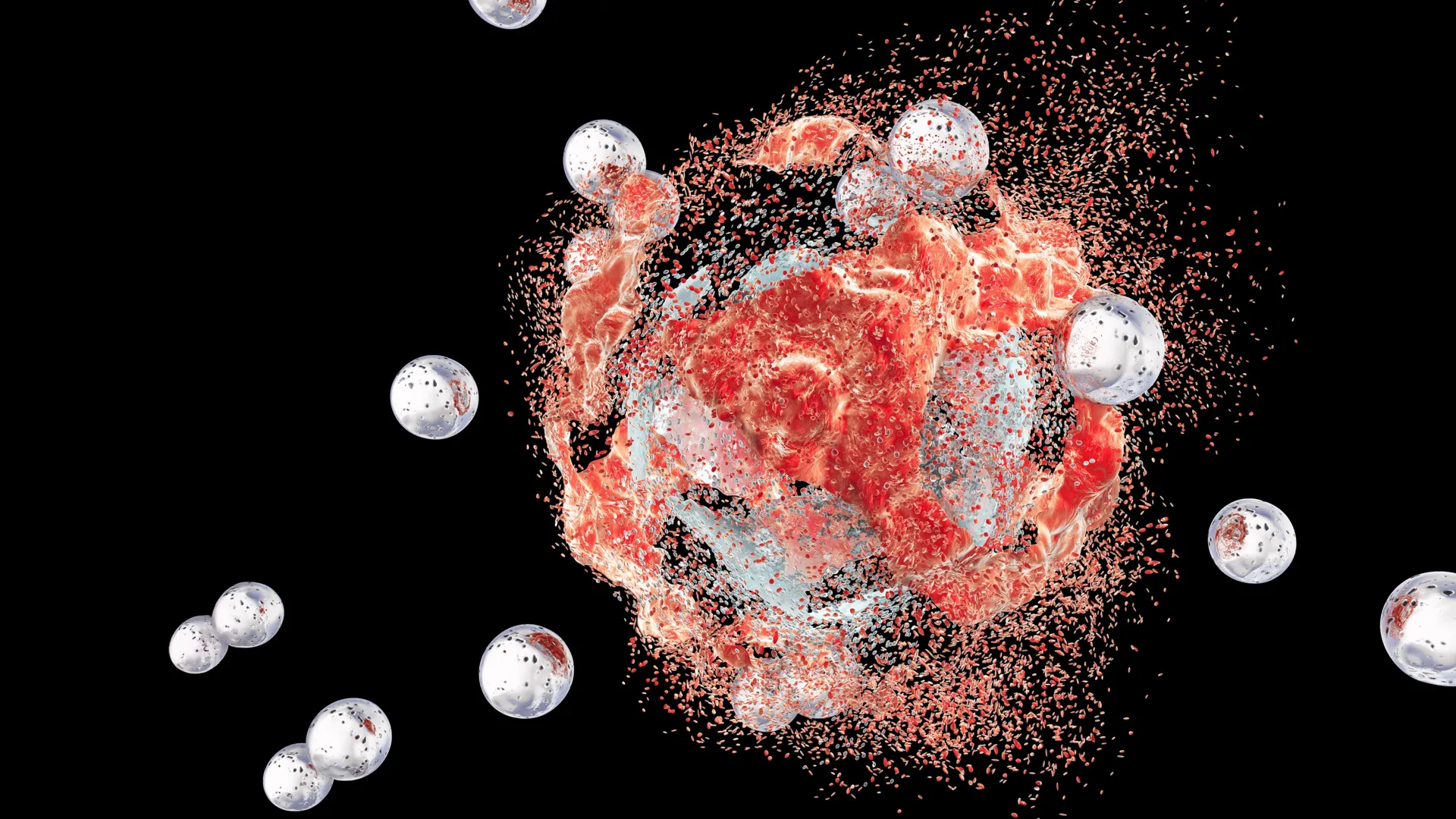Bacteria hidden inside tumors could help beat cancer
- Date:
- October 7, 2025
- Source:
- Medical Research Council (MRC) Laboratory of Medical Sciences
- Summary:
- Scientists have discovered that bacteria living inside tumors can produce a molecule that fights cancer and enhances chemotherapy. The molecule, called 2-methylisocitrate (2-MiCit), was found to make colorectal cancer cells more vulnerable to chemotherapy by damaging their DNA and disrupting their metabolism. Experiments using worms, flies, and human cancer cells confirmed its potent anti-cancer effects.
- Share:

An international team of scientists led by researchers at the MRC Laboratory of Medical Sciences (LMS), Imperial College London, and the University of Cologne has discovered that certain microbes linked to tumors produce a molecule capable of influencing cancer progression and increasing the effectiveness of chemotherapy.
While most people are aware of the bacteria that live on the skin or in the gut, new research shows that tumors also host distinct bacterial communities. Scientists are now exploring how these tumor-associated microbes affect both tumor growth and how cancers respond to treatment.
In a study published online in Cell Systems on September 10, 2025, the team identified a potent anti-cancer metabolite produced by bacteria associated with colorectal cancer. The discovery marks a major advance in understanding the relationship between microbes and cancer and could lead to the creation of new drugs designed to make chemotherapy more effective.
Using an advanced large-scale screening method, the researchers tested more than 1,100 conditions in Caenorhabditis elegans, a tiny worm commonly used in research. They discovered that the bacterium E. coli produces a molecule called 2-methylisocitrate (2-MiCit), which boosts the power of the chemotherapy drug 5-fluorouracil (5-FU).
Computer models revealed that the tumor-associated microbiome (the bacterial community found within and around tumors) in human patients could also generate 2-MiCit. The team then verified the molecule's effects using human cancer cells and a fruit fly model of colorectal cancer. In both systems, 2-MiCit displayed strong anti-cancer activity and, in flies, even extended survival.
Professor Filipe Cabreiro, head of the Host-Microbe Co-Metabolism group at the LMS and group leader at the CECAD Research Cluster in Cologne, described the breakthrough: "We've known that bacteria are associated with tumors, and now we're starting to understand the chemical conversation they're having with cancer cells. We found that one of these bacterial chemicals can act as a powerful partner for chemotherapy, disrupting the metabolism of cancer cells and making them more vulnerable to the drug."
The study revealed that 2-MiCit acts by blocking a key mitochondrial enzyme (mitochondria are structures inside cells that produce energy). This interference causes DNA damage and triggers cellular pathways that slow cancer progression. By simultaneously weakening cancer cells and enhancing chemotherapy's effects, the combination of 2-MiCit and 5-FU proved far more potent than either treatment on its own.
Dr. Daniel Martinez-Martinez, postdoctoral researcher at the LMS and first author of the paper, noted: "Microbes are an essential part of us. That a single molecule can exert such a profound impact on cancer progression is truly remarkable, and another piece of evidence on how complex biology can be when considering it from a holistic point of view. It is really exciting because we are only scratching the surface of what is really happening."
In collaboration with medicinal chemists, the researchers also modified the 2-MiCit compound to enhance its effectiveness. This synthetic version proved even more powerful at killing cancer cells, demonstrating the potential to develop new drugs based on natural microbial products. Filipe adds: "Using the natural microbial product as a starting point, we were able to design a more potent molecule, effectively improving on mother nature."
These exciting discoveries highlight how the cancer-associated microbiome can impact tumor progression, and how metabolites produced by these bacteria could be harnessed to improve cancer treatments. These findings are also important in the context of personalized medicine, emphasizing the importance of considering not only the patient, but also their microbes.
This study was primarily funded by the Leverhulme Trust, the Wellcome Trust/Royal Society, the DFG German Research Foundation, and the Medical Research Council.
Story Source:
Materials provided by Medical Research Council (MRC) Laboratory of Medical Sciences. Note: Content may be edited for style and length.
Journal Reference:
- Daniel Martinez-Martinez, Tanara V. Peres, Kristin Gehling, Leonor Quintaneiro, Cecilia Cabrera, Maksym Cherevatenko, Stephen J. Cutty, Lena Best, Georgios Marinos, Johannes Zimmerman, Ayesha Safoor, Despoina Chrysostomou, Joao B. Mokochinski, Alex Montoya, Susanne Brodesser, Michalina Zatorska, Timothy Scott, Ivan Andrew, Holger Kramer, Masuma Begum, Bian Zhang, Bernard T. Golding, Julian R. Marchesi, Susumu Hirabayashi, Christoph Kaleta, Alexis R. Barr, Christian Frezza, Helena M. Cochemé, Filipe Cabreiro. Chemotherapy modulation by a cancer-associated microbiota metabolite. Cell Systems, 2025; 16 (9): 101397 DOI: 10.1016/j.cels.2025.101397
Cite This Page: